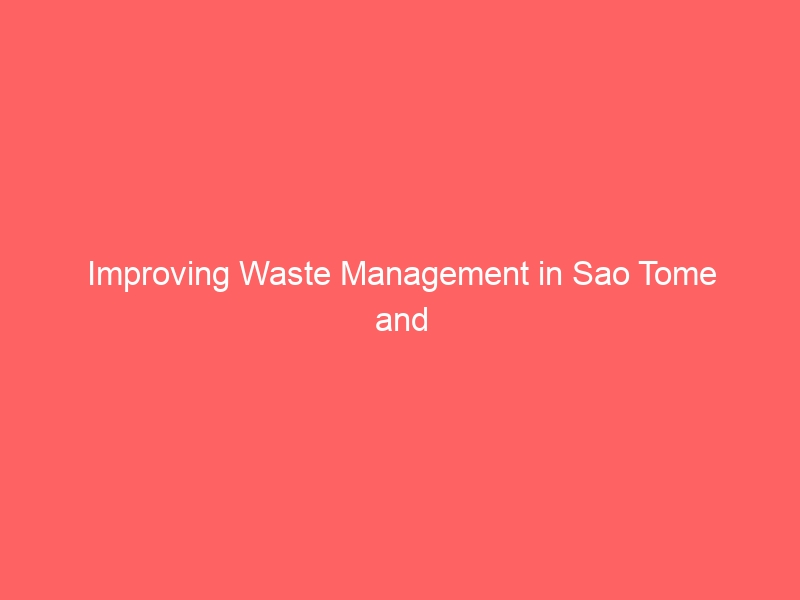Waste management is a pressing issue in many developing countries, including Sao Tome and Principe. The small island nation is facing significant challenges in managing its waste, leading to environmental pollution and public health concerns. However, there are innovative solutions that can help improve waste management in the country, one of which is the implementation of small incinerators.
The Current State of Waste Management in Sao Tome and Principe
Sao Tome and Principe, like many other developing countries, is struggling with the management of its waste. The lack of proper infrastructure and resources has led to the accumulation of waste in open dumpsites, rivers, and coastal areas. This not only pollutes the environment but also poses serious health risks to the population.
The country has limited landfill space and inadequate waste collection services, exacerbating the problem. Additionally, the absence of proper waste treatment facilities means that much of the waste ends up being burned in open fires, releasing harmful toxins into the air.
The Impact of Small Incinerators
Small incinerators offer a promising solution to the waste management challenges in Sao Tome and Principe. These incinerators are compact, cost-effective, and can be easily installed in smaller communities where waste collection and disposal are particularly challenging.
By incinerating the waste at high temperatures, small incinerators can significantly reduce the volume of solid waste, minimizing the need for landfill space. They also help prevent the release of harmful gases and pollutants into the atmosphere, promoting cleaner air and protecting public health.
Furthermore, small incinerators can generate energy from the combustion of waste, providing a sustainable and renewable source of power for the local community. This can help reduce reliance on fossil fuels and contribute to the country’s energy transition goals.
The Way Forward
It is crucial for Sao Tome and Principe to invest in modern waste management infrastructure, including the implementation of small incinerators. This will require collaboration between the government, private sector, and international organizations to secure funding and technical expertise for the installation and operation of these incinerators.
Furthermore, the country must prioritize public education and awareness campaigns to promote responsible waste disposal practices and encourage the segregation of waste at the source. This will help maximize the efficiency of small incinerators and ensure that only non-recyclable and non-compostable waste is incinerated.
By embracing small incinerators as part of a comprehensive waste management strategy, Sao Tome and Principe can make significant strides towards a cleaner and healthier environment for its citizens. The impact of these incinerators goes beyond waste reduction and energy generation; it also contributes to the overall sustainability and development of the country.
It is evident that small incinerators can play a pivotal role in improving waste management in Sao Tome and Principe. With the right investments and policies in place, these incinerators can help address the country’s waste challenges and pave the way for a more sustainable future.








